Dileep Kumar
Latency-Aware Multi-antenna SWIPT System with Battery-Constrained Receivers
Dec 10, 2021
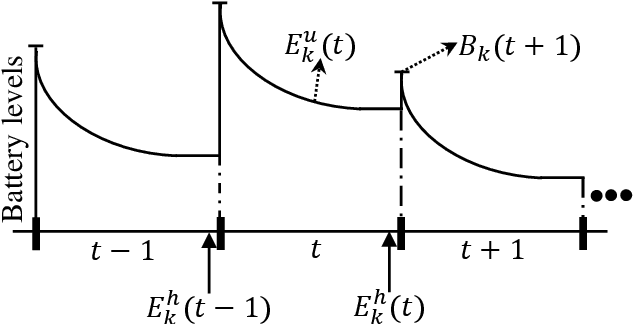
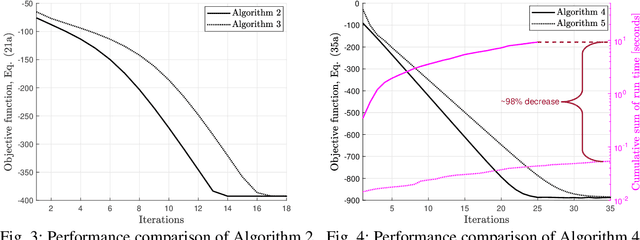
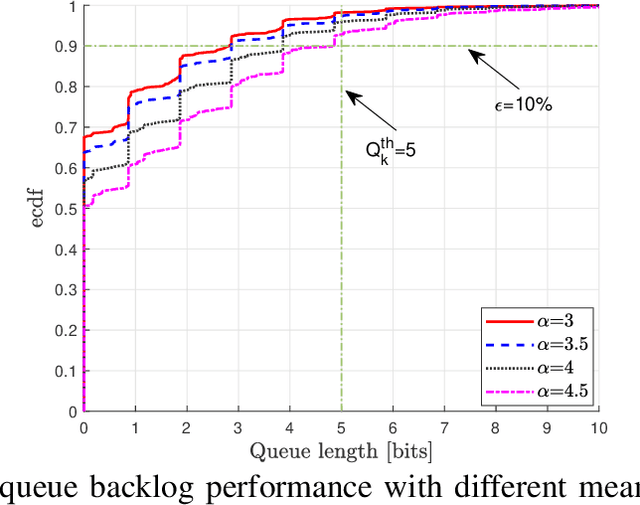
Abstract:Power splitting (PS) based simultaneous wireless information and power transfer (SWIPT) is considered in a multi-user multiple-input-single-output broadcast scenario. Specifically, we focus on jointly configuring the transmit beamforming vectors and receive PS ratios to minimize the total transmit energy of the base station under the user-specific latency and energy harvesting (EH) requirements. The battery depletion phenomenon is avoided by preemptively incorporating information regarding the receivers' battery state and EH fluctuations into the resource allocation design. The resulting time-average sum-power minimization problem is temporally correlated, non-convex (including mutually coupled latency-battery queue dynamics), and in general intractable. We use the Lyapunov optimization framework and derive a dynamic control algorithm to transform the original problem into a sequence of deterministic and independent subproblems, which are then solved via two alternative approaches: i) semidefinite relaxation combined with fractional programming, and ii) successive convex approximation. Furthermore, we design a low-complexity closed-form iterative algorithm exploiting the Karush-Kuhn-Tucker optimality conditions for a specific scenario with delay bounded batteryless receivers. Numerical results provide insights on the robustness of the proposed design to realize an energy-efficient SWIPT system while ensuring latency and EH requirements in a time dynamic mobile access network.
Latency-Constrained Highly-Reliable mmWave Communication via Multi-point Connectivity
Aug 20, 2021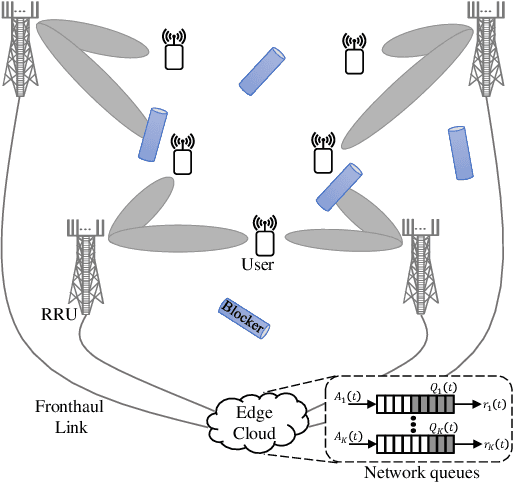
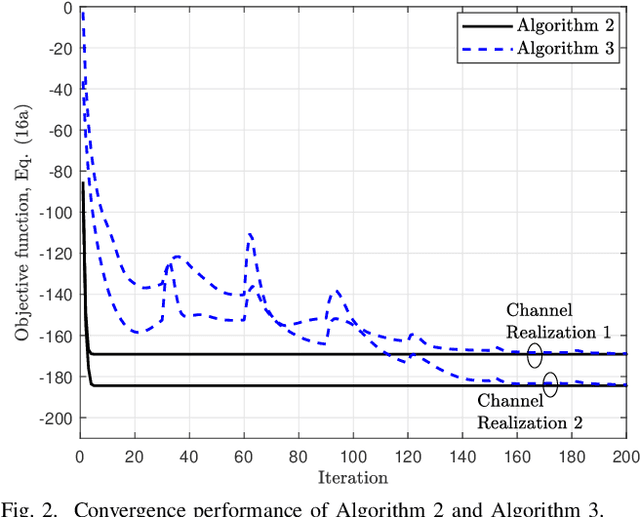
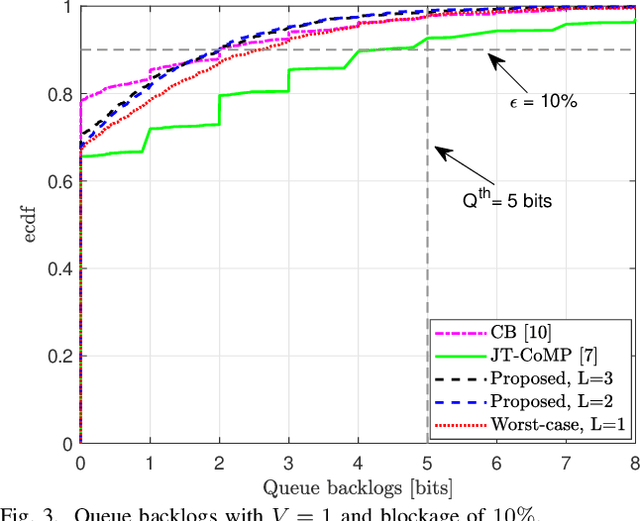
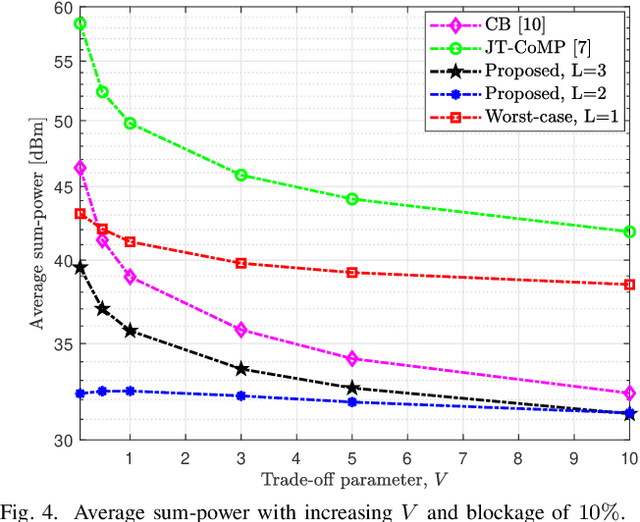
Abstract:The sensitivity of millimeter-wave (mmWave) radio channel to blockage is a fundamental challenge in achieving low-latency and ultra-reliable connectivity. In this paper, we explore the viability of using coordinated multi-point (CoMP) transmission for a delay bounded and reliable mmWave communication. We propose a novel blockage-aware algorithm for the sum-power minimization problem under the user-specific latency requirements in a dynamic mobile access network. We use the Lyapunov optimization framework, and provide a dynamic control algorithm, which efficiently transforms a time-average stochastic problem into a sequence of deterministic subproblems. A robust beamformer design is then proposed by exploiting the queue backlogs and channel information, that efficiently allocates the required radio and cooperation resources, and proactively leverages the multi-antenna spatial diversity according to the instantaneous needs of the users. Further, to adapt to the uncertainties of the mmWave channel, we consider a pessimistic estimate of the rates over link blockage combinations and an adaptive selection of the CoMP serving set from the available remote radio units (RRUs). Moreover, after the relaxation of coupled and non-convex constraints via the Fractional Program (FP) techniques, a low-complexity closed-form iterative algorithm is provided by solving a system of Karush-Kuhn-Tucker (KKT) optimality conditions. The simulation results manifest that, in the presence of random blockages, the proposed methods outperform the baseline scenarios and provide power-efficient, high-reliable, and low-latency mmWave communication.
 Add to Chrome
Add to Chrome Add to Firefox
Add to Firefox Add to Edge
Add to Edge